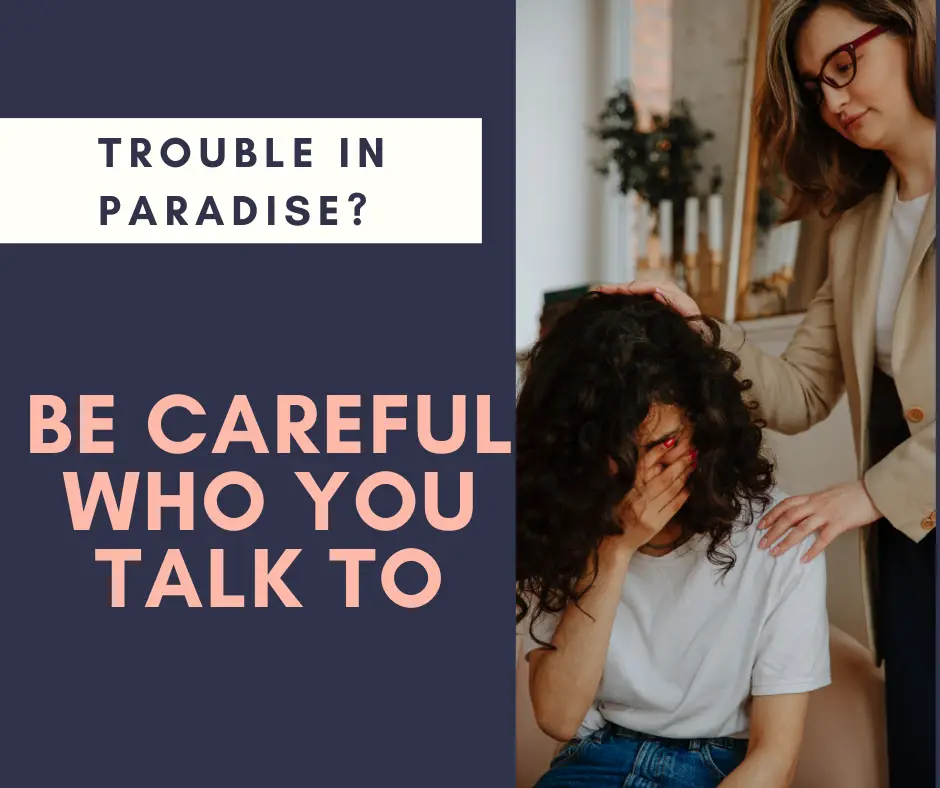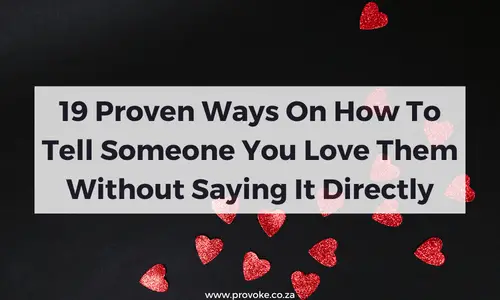Every person will experience or has experienced relationship challenges. We all encounter relationship problems regardless of our status, beliefs or even age. Relationship or marital issues are inevitable because we are humans. But finding the right person to confide in when troubled is even a bigger challenge.
Why seeking advice from your loved ones is not recommended?
There were times when I didn’t know who to talk to about my relationship issues because there are no married couples that I look up to. And also, I felt like sharing issues with people might make our marriage lose honor.
People often say that if you have marital or relationship issues you should not tell your friends and family. Your loved ones care for you, so their advice will be biased towards you and not what is best for the relationship. And when you eventually fix your issues with your partner, they might not be forgiving because of what you have told them.
Should you tell your partner’s family about your issues?
Some people say that it is better to tell your spouse’s family because they will never forsake their own child. However, I find this statement biased because how certain are you that their advice will not be biased?
If you tell them that their son is abusing you they will never suggest that you get him arrested. Or if you report that their daughter has been cheating they will only offer advice that protects their daughter and family from shame.
After having a daughter, my perspective changed. If my daughter experiences hardships in her relationships I would want her to open up to me. And I will advise her from both angles because I believe in marriage but would also advise her based on facts and support her on whichever route she chooses.
Benefits of talking to someone about your issues
1. A problem shared is a problem halved
It is sometimes easy to make a mountain out of a molehill. If you share your problems, people can offer you solutions that you never thought of. You can sometimes think that there is no way that the relationship can ever work out after you have wronged your partner, but someone can offer you tips on how you can fix things.
2. You see from all angles
Sometimes it easy to feel like a victim in the relationship, but if share your story, an unbiased person can make you realise that you were the one who was wrong. For example, if your partner has become angry and distant, he or she might be retaliating because of something that you have done.
3. You realise that you are not alone
When you share your issues, some people will make reference to their own experiences and you will realise that what you are experiencing is nothing compared to what they have experienced. But if you do not share, you will think that you are the only one with bad luck.
4. You differentiate between what is normal and not normal
If you do not talk to other people, it is easy to normalize what is not normal. Some partners do not want their women interacting with other people because some people may talk sense into them. You might think that the abuse and controlling behavior by your partner is normal, but if you shared it with other people, they would make you realise that it is a red flag.
Read more on relationship red flags not to avoid.
Some of the dangers of discussing your issues with other people
1. People won’t maintain confidentiality
The downside is that your issues might land in the wrong ears which might cause more problems than solutions. Imagine disclosing your HIV status to a friend then she spreads the news and everyone starts treating you differently. Or the issues that you discussed with other people reach your partner?
2. Your relationship might lose honor
Some couples seem perfect from a distance but once you hear their issues, you lose respect for them and even stop believing in true love or marriage.
3. Will they give you good advise?
In certain circumstances, it is easy to offer shallow advice if you haven’t been taught by experience. Also, some advisors might be jealous of you and they might not offer you the best advice. If you listen to them you might destroy something that could have been easily fixed. There have been several cases of women advising their friends to leave the relationship, whilst they want the men for themselves or want their friends to also be single.
Who is the right person to seek advise from?
Someone who will offer you an unbiased opinion and not only tell you what you want to hear. This person should not be someone who will rejoice in your misery and must not use the information against you at some point. You can talk to these people:
- Friends: Friends who are trustworthy, reliable discreet, and have a certain level of wisdom.
- Family members: A trusted family member who is wise. It can even be your parent, sibling, an extended family member. But it should be someone who won’t mislead you or make things awkward when you meet at family gatherings.
- Your partner’s family: They can be able to help you vent but just be careful that their advice is not biased towards their child.
- Religious leader: You can also seek counsel from your pastor, church leader, or someone that you trust. They can even be able to support you in prayer.
- Stranger: It can be easier to share your issues with a stranger than with someone you know. A stranger does not know you or your partner so the advice might be unbiased, and chances of meeting you again might be slim.
- Other couples: You can also reach out to other couples preferably older, who can offer you their advice.
- Support groups: With social media being part of a support group has become easier. You can read what other people are going through and also be able to post your problems anonymously and people will provide you with answers.
- Couples therapist: Sometimes you will need to seek help from a professional who will help you dissect your issues and be able to navigate them.
Final thoughts
Sometimes you just have to swallow your pride and reach out for help, because there is no one who is perfect and no one expects your relationship to be perfect. You should accept that you do not have all the answers. Even pastors, therapists, and couples who seem perfect all have their own relationship challenges and also need other people to help them through their issues.









